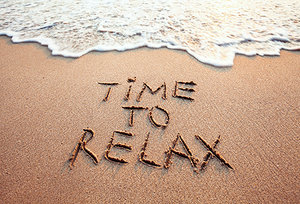How to Feel, Look Younger
By Editorial Staff
Everyone experiences stress now and then, but evidence suggests it's getting worse, impacting more people and to a greater extent. Stress is also affecting a greater percentage of young people – adults in their late teens, 20s and 30s. If you're in one of those age groups – or know someone who is, bear in mind that stress can be making them feel and look older than they actually are; and research supports it.
In a new study, researchers gave younger adults ages 18-36 a baseline survey on daily stress, followed by eight consecutive days of daily surveys. Each survey assessed how much stress participants experienced daily, including how much control they felt they had over their lives – and how old they felt and thought they looked each day.
 According to study findings, young adults who reported higher levels of stress than they normally did – particularly in terms of how their stress levels impacted their sense of control over their lives – also reported feeling and looking older. The effect was relative; in other words, even if someone normally had low levels of stress, they reported looking and feeling older, even if their stress levels were relatively low, but higher than normal.
According to study findings, young adults who reported higher levels of stress than they normally did – particularly in terms of how their stress levels impacted their sense of control over their lives – also reported feeling and looking older. The effect was relative; in other words, even if someone normally had low levels of stress, they reported looking and feeling older, even if their stress levels were relatively low, but higher than normal.
Previous research has shown that this phenomenon occurs in older adults, but this study suggests stress even impacts how younger adults look and feel. That means limiting stress is a true anti-aging tactic, regardless of age. If you can't seem to get your stress levels in check, talk to your doctor about ways to not only prevent stress, but also manage it once it strikes. Look and feel younger – just by avoiding stress spikes.

